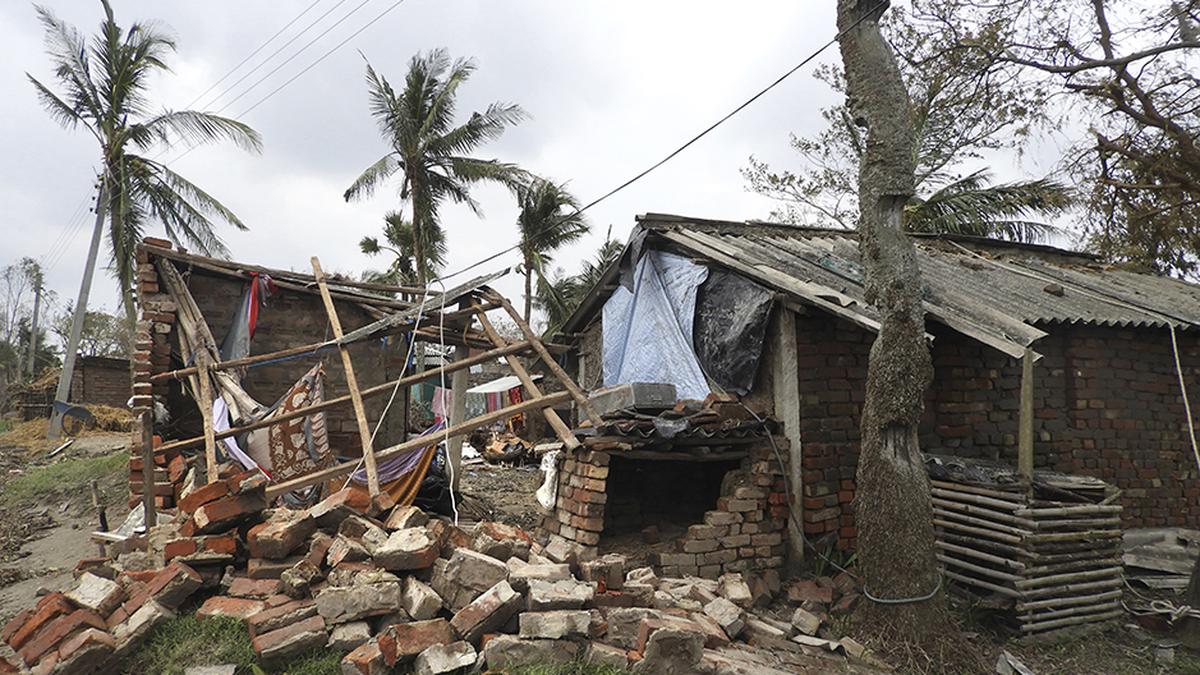
Climate change linked to poverty, trafficking in the Sundarbans
The Hindu
Climate change-induced poverty in West Bengal drives human trafficking, posing a major policy challenge despite government and NGO efforts.
Despite several interventions by the government and efforts of non-government organisations, trafficking continues to be a major policy challenge in certain parts of West Bengal. With frequent cyclones hitting the West Bengal coastline every year, and the rise in the sea level eroding the islands of the Sundarbans, experts say climate change is one of the factors pushing people into poverty and driving trafficking.
Five tropical cyclones have battered the West Bengal coastline since May 2020, when cyclone Amphan devastated the coastal areas of West Bengal, causing loss of livelihoods and triggering migration. The most recent among them was cyclone Dana, which hit the State’s coastline on October 24, 2024.
“Climate change has become a factor of human trafficking, especially in vulnerable regions such as the Sundarbans. Back-to-back cyclones like Amphan and Yaas destroyed livelihoods, forcing increased migration, and exposing women, girls and others to greater risks,” Nihar Ranjan Raptan, founder secretary, Goranbose Gram Bikash Kendra, an NGO working to combat trafficking, said.
Mr. Raptan said that traffickers exploited socio-environmental vulnerabilities and a community’s limited access to essential services. “From our work across districts and parts of the Sundarbans, we see the urgent need to create opportunities and facilitate access to support systems for those in need,” he said.
According to the National Crime Records Bureau’s (NCRB) latest report, 58,871 people were reported missing from West Bengal in 2022, and 53,655 of them were women. Among the missing were 12,455 children in West Bengal, and 67 cases of human trafficking were reported with 78 victims in 2022. The NCRB data for the same year shows a conviction rate of 55% in human trafficking cases in the State.
Several stakeholders from ILFAT (Integrated Leaders Forum Against Trafficking), including Nihar Ranjan Raptan, feel that the fight against trafficking should integrate climate change as a factor for effective interventions. ILFAT is one of the biggest federations of trafficking survivors, comprising over 2,800 members across seven States.
The ILFAT released a report on trafficking on July 30, 2024, World Anti-Human Trafficking Day. The report points out that the number of human trafficking cases reported in West Bengal in 2020 was 59, which increased to 61 in 2021, and rose to 67 in 2022. In 2022, 60 females and 18 males aged below 18 years were trafficked, ILFAT said.

Mangaluru-Bengaluru National Highway 75, and Mani (Mangaluru) - Mysuru NH 275 have been in various stages of development for the past many years. These highways often are closed during heavy rains. The Mangaluru-Hassan rail connectivity too gets disturbed during heavy rains. In such a situation, air fares between Mangaluru and Bengaluru shoot up, going up to ₹10,000 per person.





















 Run 3 Space | Play Space Running Game
Run 3 Space | Play Space Running Game Traffic Jam 3D | Online Racing Game
Traffic Jam 3D | Online Racing Game Duck Hunt | Play Old Classic Game
Duck Hunt | Play Old Classic Game










